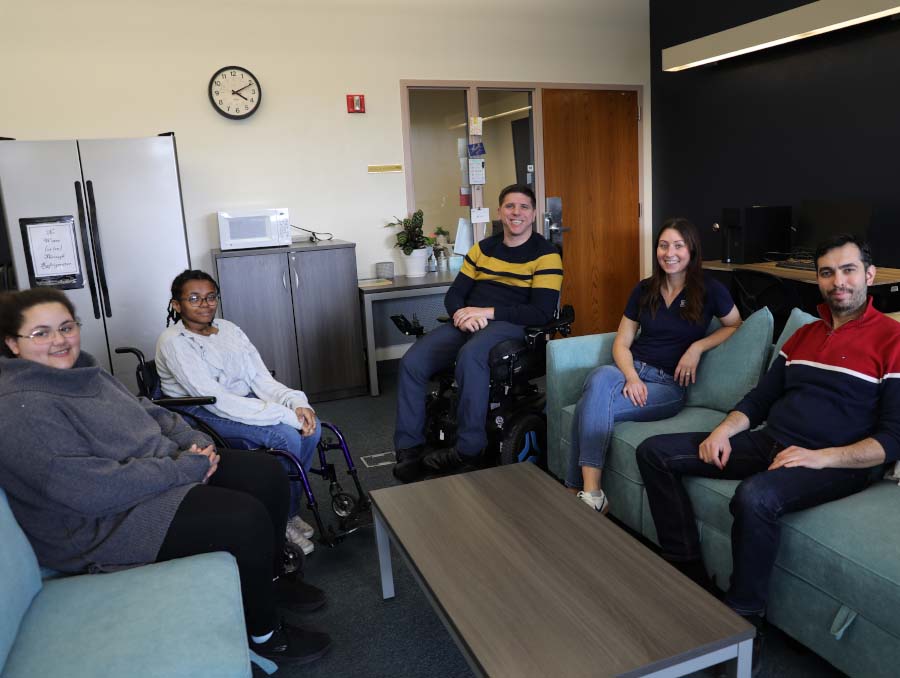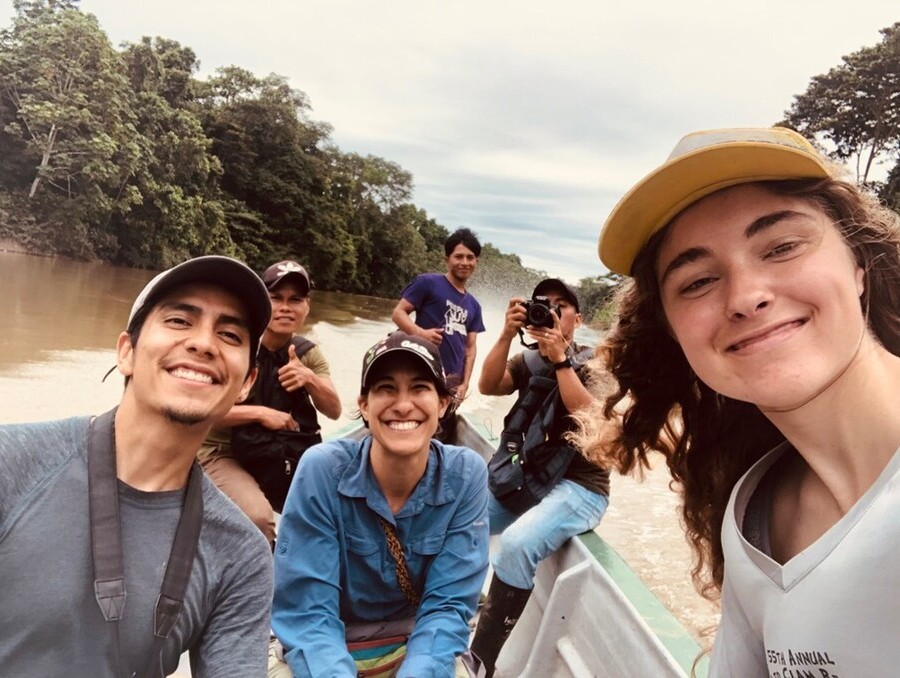The Nevada Center for Excellence in Disabilities (NCED) received a five-year, $200,000 grant from the National Science Foundation to increase the support for students with disabilities looking to enter the STEM (Science, Technology, Engineering and Math) fields.
As part of the grant, a mentorship program has been formed by seven students looking to change how students with disabilities are represented in STEM fields and at the University. This alliance aims to highlight, empower and advocate for students with disabilities. Students can work through issues they might be facing and bond over their passion for the field.
“I am representing a group that more often than not gets overlooked [and] my main goal is to be there to help students with disabilities navigate college and to bring awareness of our issues to the public,” student leader Ammal Abdul said. “I joined, so I could use my experiences to help other students like me.
"I think that we bring a unique set of problem-solving skills to STEM [as] constantly having to work around a world that isn't built for you allows you to see solutions that others don't, and that can be especially helpful in the STEM field."
"Nothing about us without us," said Randall Owen, associate professor of special education and director of Nevada Center for Excellence in Disabilities, and who has a disability.
This sentiment is a common thread amongst people who are disabled, as these individuals have a unique perspective on the world and one that the STEM field could benefit from.
"Including disability perspectives leads to innovation," Owen said.
For the program on campus, he is the principal investigator and the disability mentor. Other members of the team include Mehmet Gumus, instructor of Mathematics and STEM mentor, and Nicole Wadden, Path to Independence employment coordinator.
Too often, disability is left out of the diversity, equity and inclusion talks, even though the Americans with Disabilities Act was adopted in 1990 to remove barriers to full inclusion and promote full participation in society.
"Disability should be seen as an aspect of human diversity; because of the high incidence of disability in the population, the perspectives and voices of people with disabilities should be valued within all spaces," Owen said. “As we continue to strive toward social justice, disability demands to be included in those conversations."
As part of the grant, students and the University will be involved in nationwide research projects over the next few years to raise awareness and provide people with an inside look at what challenges are presented to someone with a visible or invisible disability. Through one of these projects, participants will be using photovoice, a type of ethnographic research methodology where the individuals photograph a significant challenge in their life.
Students Makaalynn Wortham and Ammal Abdul will be representing the University at the TAPDINTO-STEM annual conference in Kansas City at the end of March. The students will have the opportunity to hear about involvement in research in the STEM field and interact and work with students and faculty from other colleges and universities.
These students are part of a more extensive, nationwide network of 31 colleges and universities that are part of the NSF Eddie Bernice Johnson INCLUDES Initiative: The Alliance for Students with Disabilities for Inclusion, Networking, and Transition Opportunities in STEM. The students are also part of the Mountain Hub, a group of five colleges and universities in the Mountain West, where they have monthly meetings to share across campuses and learn from one another.
There are many ways for students to become involved or receive support, as partnerships exist within the campus with the Disability Resource Center and beyond the campus with various internship sites in the community. As the program on the University's campus grows, faculty involved in the program will work to build internship pipelines for students. If an individual or organization is interested in learning more about how they can be involved, they are encouraged to contact NCED Director Randall Owen.
















